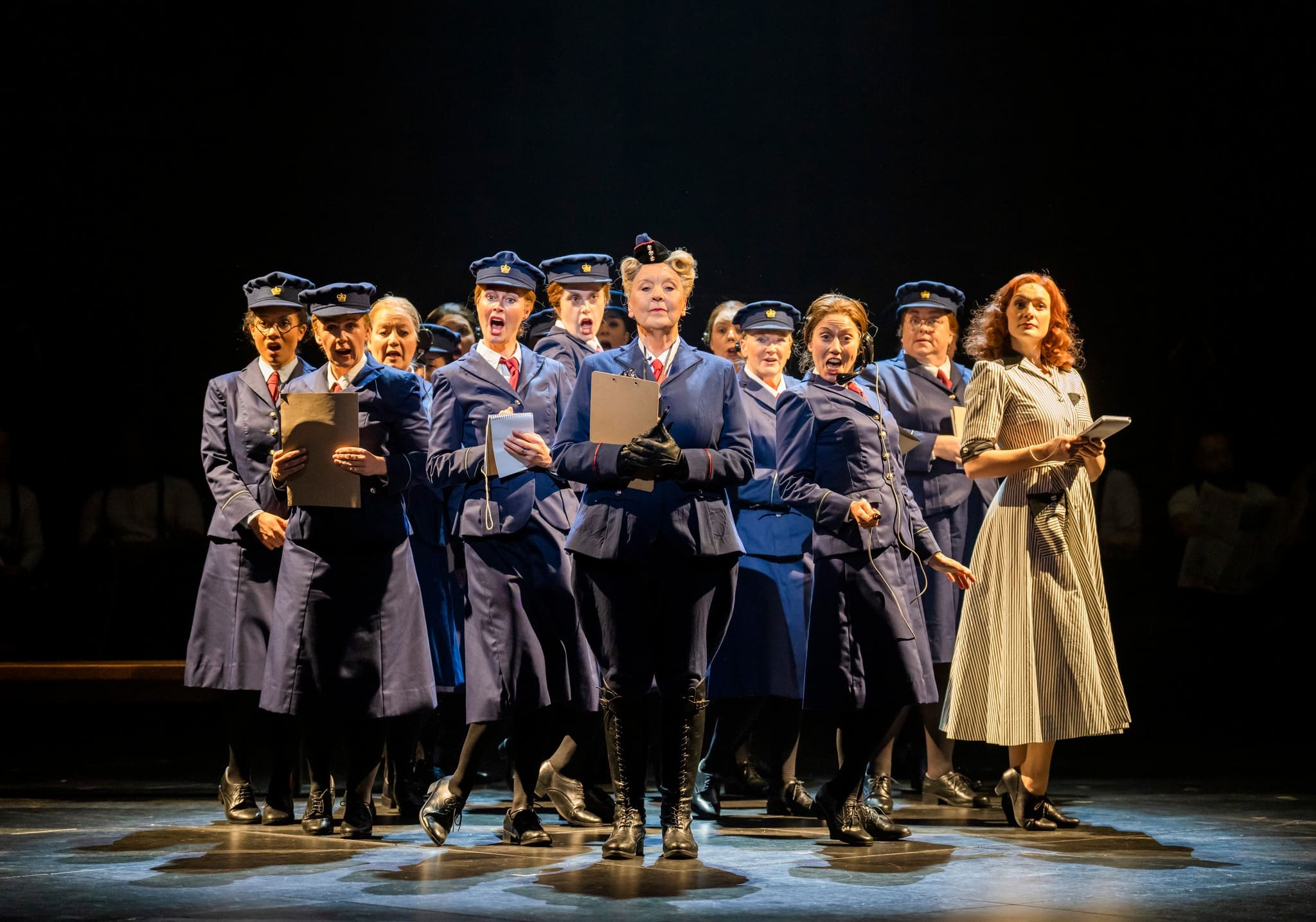ENO receives £24m stay of execution
NewsArts Council England is throwing more money at English National Opera in order to cover up its own mistaken policy of driving the company out of town. Aside from the irreparable damage it has done to ENO, the Arts Council has put itself into a corner where it is perceived as anti-London, anti-opera and anti-art. This charade needs to end with head-rolling.
Here’s the ACE climbdown:
Today, Arts Council England(ACE)announced a grant of £24 million for the English National Opera(ENO)for April 2024 to March 2026, and a longer timeframe for the ENO to complete the establishment of a new main base outside the capital.
During the 2024-26 period, the ENO will develop an artistic programme in the new city, whilst transitioning to a new business model, which will see the company deliver a substantial opera season every year in London while developing a significant performance and engagement programme in their new city. The ENO plans to confirm the location of the new city in December this year.
The move to the new base will be completed by March 2029, rather than by March 2026 as originally envisaged. The longer timeframe will mean more stability, allow for consultation with staff, more work in London and more time for the ENO to develop partnerships in the new city and to establish a programme there.
In February 2022, the UK Government instructed the Arts Council to redistribute some of its funding from London to other parts of the country. Arts Council decided to continue to support the ENO but outside its National Portfolio, and in November 2022 it announced it had ringfenced funding for the ENO. Since then, the two organisations have been working together closely as the ENO works to establish a new base outside of London whilst continuing to own, manage and produce work at the London Coliseum. In total, the Arts Council is investing £35.46 million in the ENO between 2023-26.
The shared ambition is for the ENO to be in a strong position to apply to the Arts Council’s National Portfolio of funded organisations from 2026.
Sir Nicholas Serota, Arts Council England, Chair, said: “As custodians of public money, the Arts Council has led a rigorous process that has carefully considered ENO’s application. The ENO has presented inspiring ideas to bring their excellent work to people beyond the capital and to explore a range of new ways of presenting opera, and we are investing £24 million in the company over two years to help them realise these ambitions. The extended timeline for their transition to a new main base will enable the ENO to undertake this complex move and to develop partnerships in the new city. The Arts Council’s support for opera is unwavering, and we are excited by the ENO’s new plans and by the enthusiasm shown by the potential host cities.”
Dr Harry Brünjes, Chair, The English National Opera said: “The ENO Board and Management look forward to working with the Arts Council to develop this positive future for the organisation. We welcome this investment and additional time which we believe will help us to successfully develop a new main base out of London, whilst maintaining a season at the London Coliseum. We are pleased that Arts Council England support the artistic plans we have proposed in tandem with our longstanding wish to engage with new audiences and partners around the country.
“Our most recent season at the London Coliseum was a fantastic success, and we now have an opportunity to build upon that both within London and from our new base. It is important to note the hard work of our outgoing CEO, Stuart Murphy, and our incoming Interim CEO Jenny Mollica, alongside the ENO’s Artistic Director, Annilese Miskimmon, and Music Director, Martyn Brabbins, throughout this process.”
Culture Secretary Lucy Frazer said: ”The English National Opera is a treasured national institution and I welcome the agreement they reached with Arts Council England to ensure a smooth transition towards a new future for the organisation. I look forward to seeing the plans it develops to make sure more people across the country can experience its fantastic work.”






Bottom line: they are still being asked to leave London. Band-aid cash doesn’t change reality. Stuart Murphy and Harry Brunjes are brilliant, world-class failures. They took an existing mess and made it worse (their dull AD and MD have not helped, either). Maybe next time the ACE will not allow a failed TV bully as CEO. Nor a miniature traveling salesman as (high) Chair. Very sad for the full staff of ENO who deserve better.
Excellent news
Funny isn’t it that ACE doesn’t know that there is no definite article? Always ENO never the ENO.
It’s lately started to refer to itself ‘the ENO’ quite a bit. A certain amount on their website, quite a lot in their programmes. It would be interesting to know why.
About time the Arts Council had a new board. ENO are indispensable on the London arts scene – outside London there is WNO, English National Opera North, Scottish Opera, Birmingham Royal Ballet, Scottish Ballet plus the BBC orchestras, RSNO, Scottish Chamber and a myriad of freelance outfits! ACE should be reconfigured.
First of all Patrick, I need to tell you that English National Opera North ceased to exist around 1981, when it became Opera North. There are also one or two notable omissions from your list of extra-London organisations – most notable being the Royal Liverpool Philharmonic Orchestra and (by no means the least notable) The City of Birmingham Symphony Orchestra.
So, they envisage something like the old RSC Stratford-London model? Theoretically, if their new base gave them the resources to become an ‘opera lab’ in the best sense, whose work and developed-techniques and education network etc could influence other companies far and wide, could have its proud season showcase in London, and where ENO could become the jewel of its new location’s crown (as the RSC is in Stratford), that could be lovely and very positive for opera. But that’s not going to happen, is it? Besides which, it takes far longer to seed and develop audiences and local support networks for opera than it does for theatre. But if they’re saddled with this plan, which is certainly better than the earlier prospect, that is perhaps an ideal to strive for.
“it takes far longer to seed and develop audiences and local support networks for opera than it does for theatre”
Spot on. That is a huge part of the problem. You can’t just plonk an opera company in a town and assume that it will thrive. In Germany maybe, but not here.
Let’s face it, ACE doesn’t really have a clue what to do about this.
All the comments above are broadly correct. Serota and Co. having made fools of themselves initially, are now backtracking. But the fundamental problem remains and it is a basic indifference to opera. The destruction of the WNO and Glyndebourne tours has resulted in a significant part of provincial middle England being deprived of opera. The Glyndebourne tour audience was quite unlike the festival one, possibly less affluent and less able to go to the metropolitan houses. So, no opera for them now. Add to this the lost opportunity for young talent to develop and one despairs.
Despite popular belief, the ACE are not stupid – certainly not Serota. They went for the dramatic cut up front: making it clear ENO-NO had to leave London. Slowly, once ENO’s less intelligent & emotional leadership team accepted the demand to relocate, Serota dribbled them back a few million at a time to support the move outside the capitol. Very intelligent planning on Serota’s part: whether we like it or not: the man is highly intelligent: he knew what he was doing from announcement 1. And he has gotten what the ACE wanted: ENO-NO out of London. I know many of emotional banner-wavers will dislike this comment, but I must say, well done, Nick Serota. He is a more clever politician than the ineptitude displayed by ENO’s rash Chief and highly inexperienced Chair. How they got into power is a more interesting question to pose to ACE. May it never happen again.
“the ACE are not stupid”
Thank you for clearing that up.
You don’t, however, explain ACE’s “intelligent” treatment of WNO and Glyndebourne’s touring operations. What are we missing?